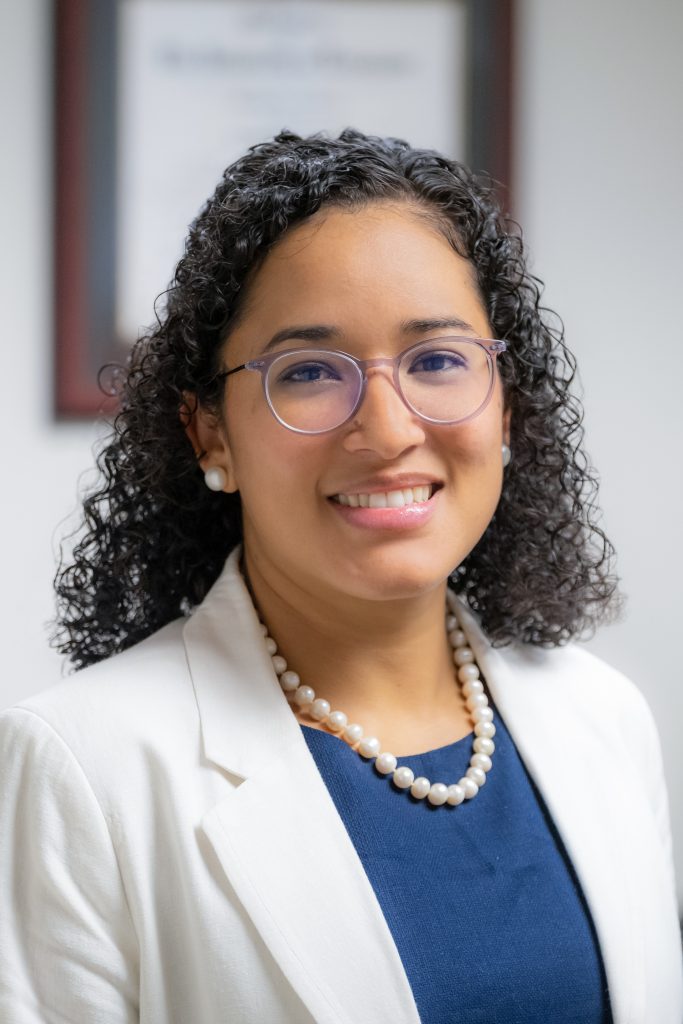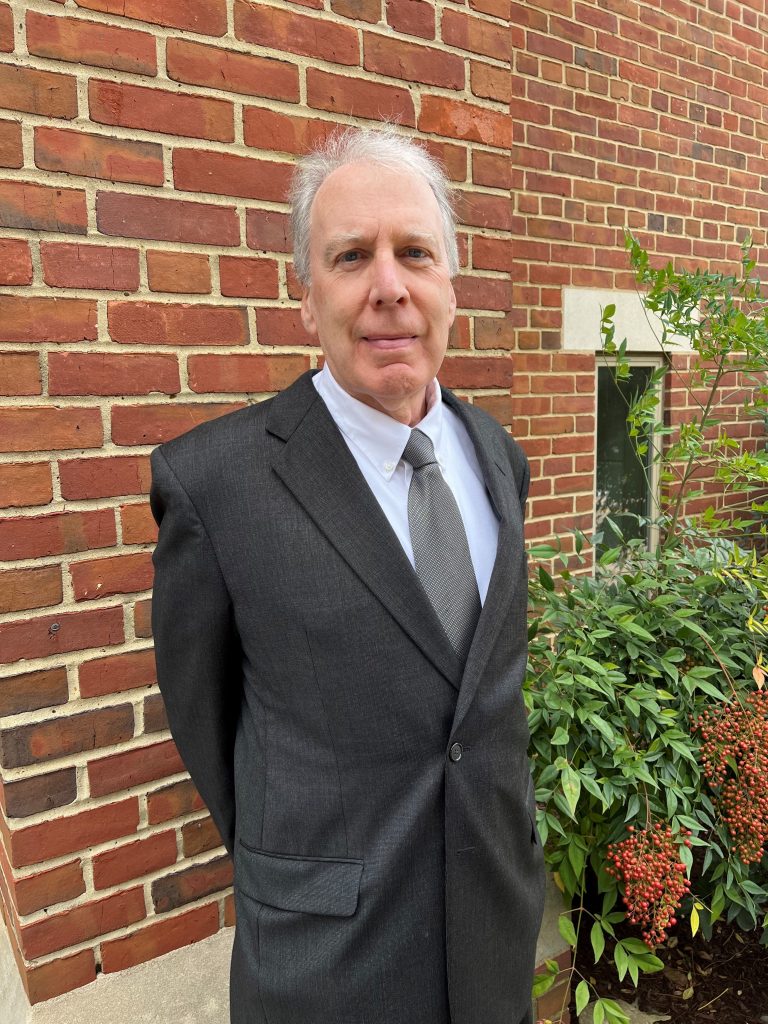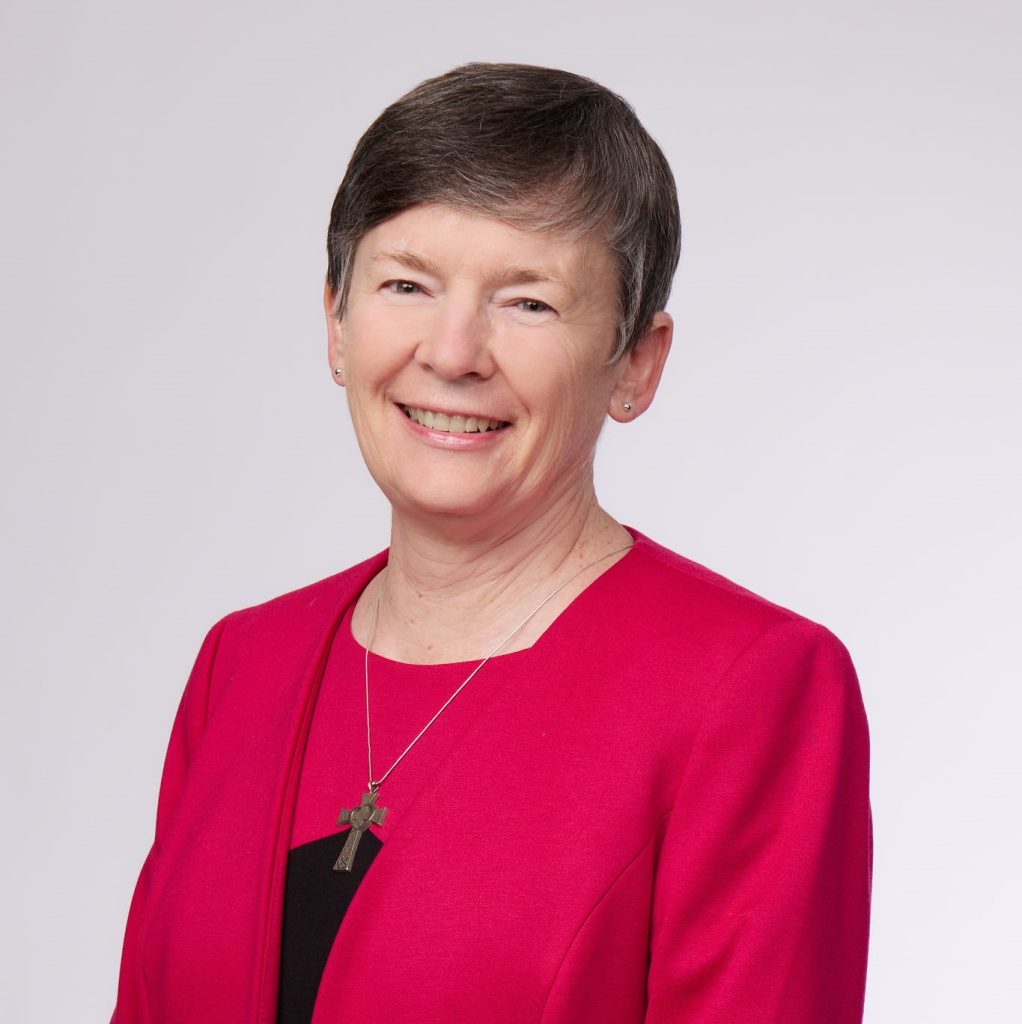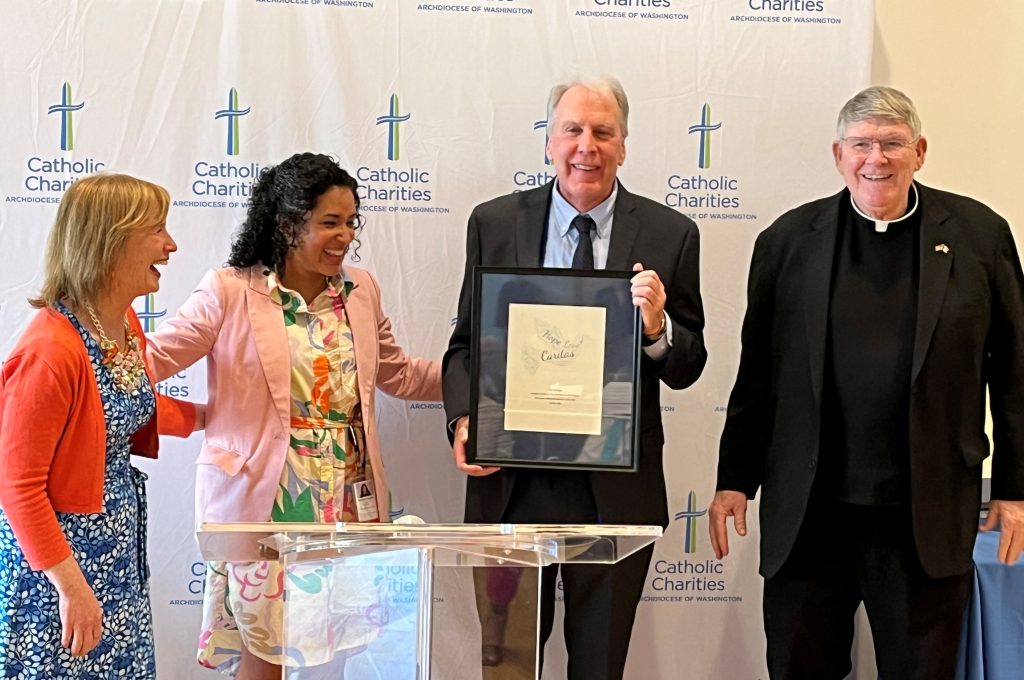Every Tuesday, Tim Mulligan, a pro bono attorney for Catholic Charities Archdiocese of Washington, receives an email that details legal cases involving migrants who desperately need help but can’t afford to pay even the modest fees charged by the agency.
The cases are heartbreaking – a litany of the woes that can befall migrants, particularly women and children who find themselves in abusive domestic relationships. The cases entail a substantial amount of paperwork. Because of the backlog in the immigration court system, it can take years for cases to be resolved.
After reading the weekly email, Mulligan and other dedicated pro bono attorneys contact Estefania Chávez Higgins, senior managing attorney of the Pro Bono Program, and let her know which case they’d like to tackle.



The attorneys have contributed countless hours to the Pro Bono Program, which is part of the agency’s Immigration Legal Services. The Pro Bono Program has experienced significant growth over the past year and evolved to better serve both clients and the attorneys.
“We have a very talented, very professional pro bono team,” says Sister Sharlet Ann Wagner, CSC, executive director of the agency’s Newcomer Network, which includes Immigration Legal Services. “This means we’re able to provide high-quality legal services to people who can’t afford to pay our fee. Just because they can’t pay, doesn’t mean they don’t deserve top-notch legal services.”
The pro bono attorneys focus on humanitarian cases that include asylum, U visas for crime victims, as well as petitions for Special Immigration Juvenile Status (SIJS) and relief under the Violence Against Women Act. Mulligan usually takes cases involving SIJS, which allows immigrant children under the age of 21 who cannot reunify with their parents because of abuse, abandonment or neglect to obtain lawful permanent immigration status.
Taking a humanitarian case is an opportunity to really make a difference in someone’s life. When you win an asylum case, you know you’ve saved a life.Sister Sharlet Ann Wagner
To improve its pro bono services, Catholic Charities developed a long-range strategic plan and brought in a consultant who recommended several ways to enhance the program. The improvements included creating two new offices at Catholic Charities downtown office on G Street NW, making pro bono orientation materials more user-friendly, bolstering the mentoring process for new pro bono attorneys, and tracking cases with special software.
Many of the pro bono attorneys are lawyers who, in their day-to-day professional lives, typically don’t handle cases involving humanitarian causes, says Higgins. Most of them focus on other areas of the law, for example, taxes, patents, corporate, commercial real estate, and mergers and acquisitions.
“Taking a humanitarian case is an opportunity to really make a difference in someone’s life,” says Wagner. “When you win an asylum case, you know you’ve saved a life. You may have saved more than one life when you’re working with a family.”
Mulligan, a retired lawyer who has served as a Catholic Charities pro bono attorney since 2018, received the Newcomer Network Volunteer of the Year Award earlier this year for his pro bono work. “Known as an energetic, even tireless advocate … Mulligan strengthens the lives of those most vulnerable in our community,” according to the award citation.

Mulligan recalls the case of a mother and her two children, who came to the United States from Peru to escape abuse at the hand of the father of the younger child. After they spent several years winding their way through the immigration process, the children’s mother burst into tears when Mulligan was finally able to present the children with their legal permanent resident visas.
“That case was particularly moving – something I don’t think a lot of lawyers get to experience in their careers,” he says.
Immigration Legal Services notes these successful cases in an email newsletter called “Pro Bono Victories.” A recent newsletter included a case handled by a retired attorney who helped a woman from El Salvador gain approval of her Violence Against Women Act petition.
Another case handled by a pro bono attorney at a law firm involved five siblings and half siblings from Guatemala who were granted SIJS status and deferred status, enabling them to stay in the United States and obtain work permits.
“Immigration legal services providers in the DMV are at capacity, and we’re one the few providers that regularly accepts new cases,” says Wagner. “Nevertheless, our staff attorneys cannot help everyone who comes to our door. The commitment and dedication of our pro bono attorneys ensure that some who desperately need help will not have to be turned away.”
- Last year, 123 cases were placed with pro bono attorneys for full representation.
- The firms that participate in the pro bono program reported that 265 attorneys were working on cases.
- 78 additional consultations were provided to individuals who did not qualify for immigration relief.